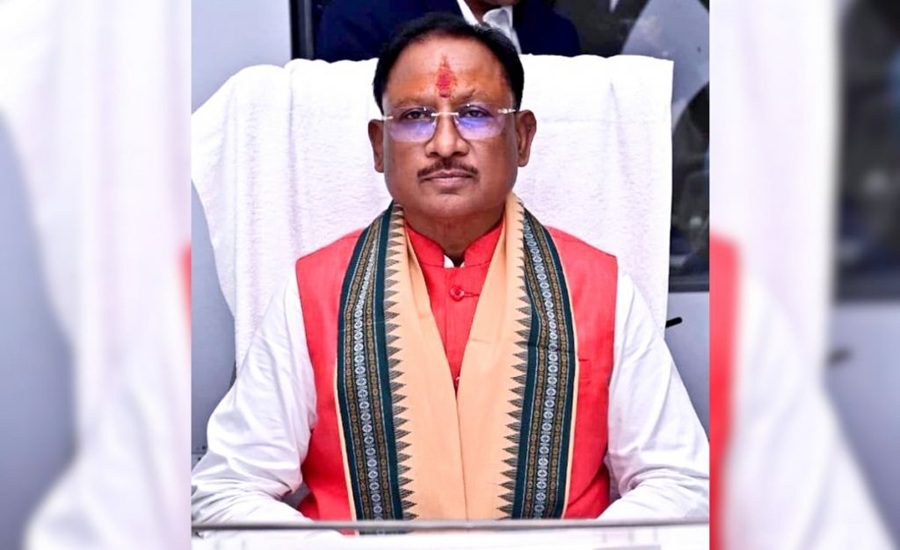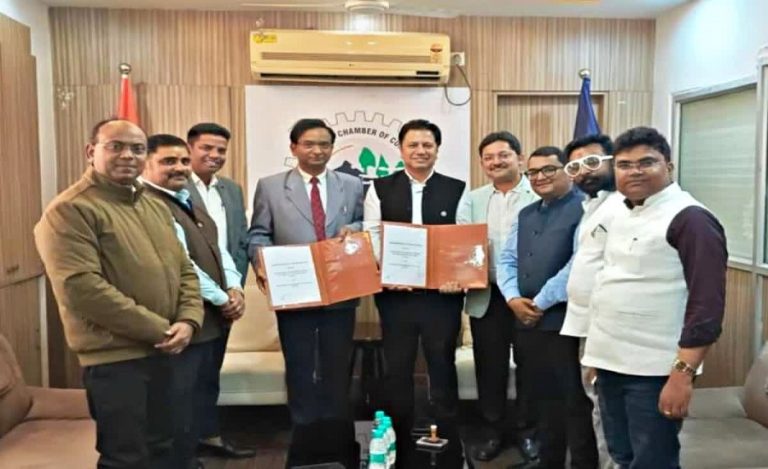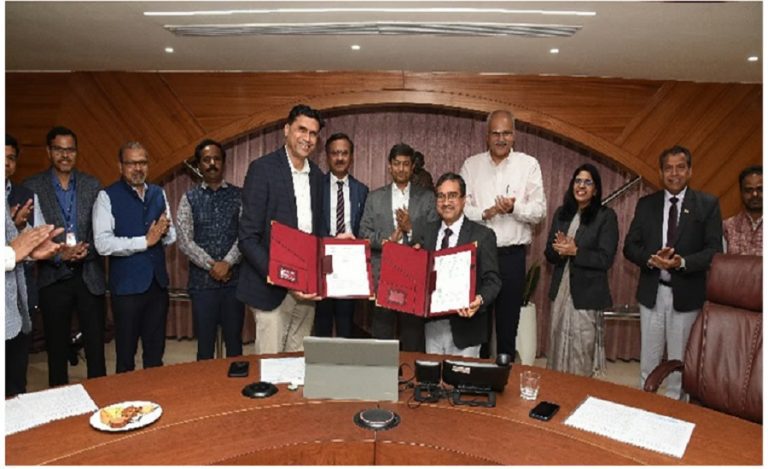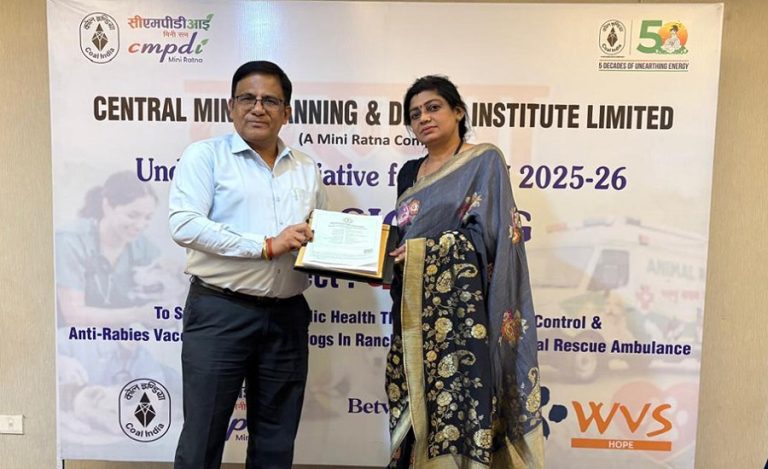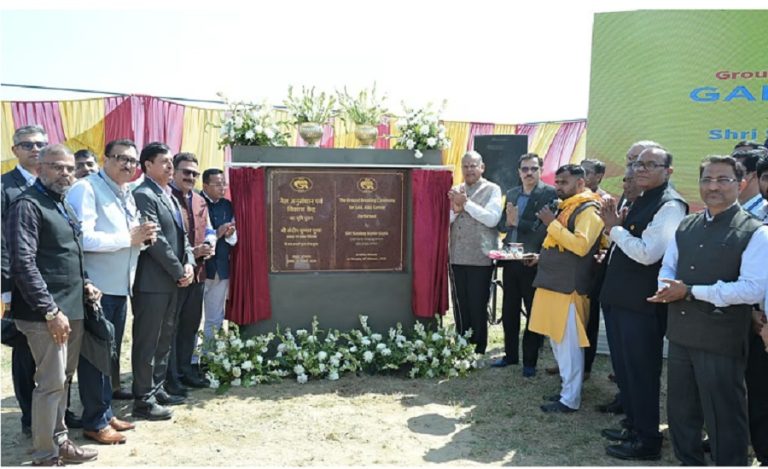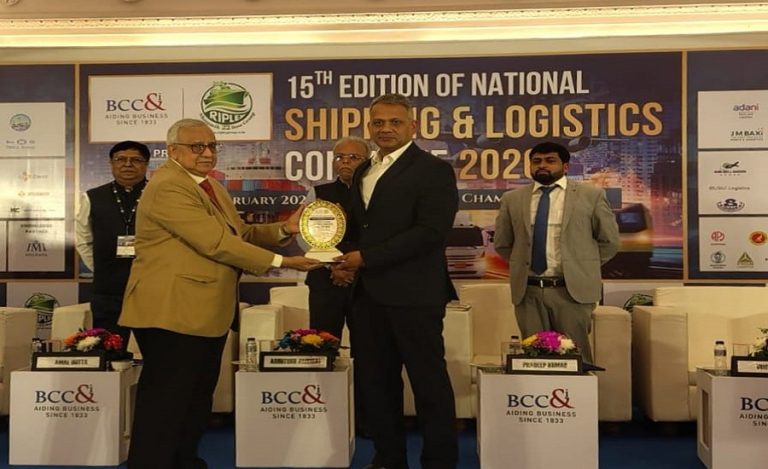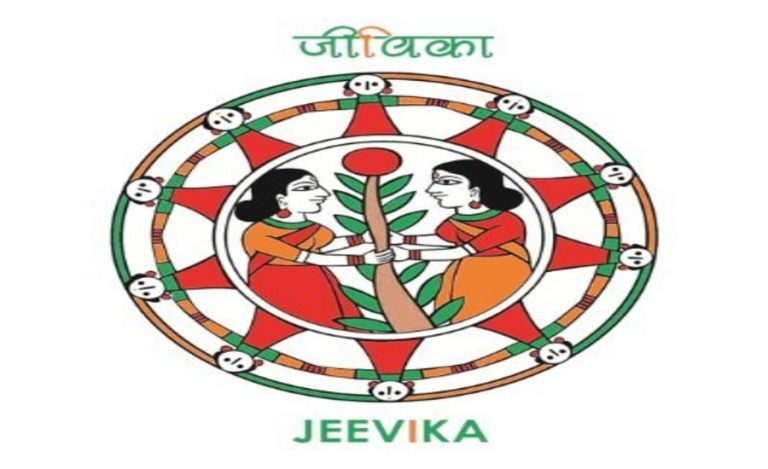Chhattisgarh CM Vishnu Deo Sai inaugurated a three-day foundational and orientation training programme for newly elected District Panchayat Presidents and Vice-Presidents at the Thakur Pyarelal State Institute of Panchayat and Rural Development in Nimora, Raipur. CM Vishnu Deo Sai inaugurated a three-day foundational and orientation training programme for newly elected District Panchayat Presidents and Vice-Presidents at the Thakur Pyarelal State Institute of Panchayat and Rural Development in Nimora, Raipur.
Also Read: Gujarat CM Bhupendra Patel Reviews Rs. 1,100 Crore Dharoi Dam Tourism Project
Panchayati Raj: Pillar of Rural Development
In his address, Mr. Sai described Panchayati Raj Institutions as the cornerstone of rural progress. “As newly elected Presidents and Vice-Presidents, you now have both the opportunity and responsibility to lead transformative change,” he said. Emphasizing the power of individual will, he added, “Even one determined person can change the face of an entire district.”
From Panch to CM: A Journey of Struggle
Sharing his personal story, Mr. Sai spoke of his humble beginnings. “I lost my father at the age of 10 and had to shoulder my family’s responsibility. I never imagined I would enter politics, let alone become Chief Minister,” he said. He added that he began his public life as a Panch and credited the people’s blessings for his rise to the positions of MLA, MP, and CM.
Inspirational Leaders Who Made a Difference
Mr. Sai highlighted two individuals who inspired him: Dr. Achyuta Samanta of Odisha and social reformer Nanaji Deshmukh. Dr. Samanta, he said, overcame severe hardship to establish a large educational institution in Bhubaneswar, where around 25,000 tribal children receive free education.
Similarly, Mr. Sai praised Nanaji Deshmukh’s work in Chitrakoot, where through the Deendayal Research Institute, he adopted 500 villages. “By 2006–07, 80 villages had already become self-reliant, demonstrating the kind of change one individual can create,” he said.
Chhattisgarh’s Rich Potential and the Fight Against Naxalism
The Chief Minister emphasized the state’s natural and human resources. “With 44% forest cover and fertile land, our farmers are hardworking. Naxalism was our biggest hurdle, but we are defeating it,” he said. Mr. Sai also spoke about the state’s new rehabilitation policy for surrendered Naxals, aiming to make Chhattisgarh completely free of Naxal violence.
He shared a story from Muler village in Bastar, where residents once walked 25 km over three days for rations. The government responded by creating a separate Panchayat and opening a ration shop. “Seeing joy on their faces reaffirmed our path,” Mr. Sai said.
Call for Responsible and Quality-Driven Leadership
Mr. Sai urged the newly elected leaders to make the most of the training. “Without developing villages, we can’t build a developed Chhattisgarh. Field visits and quality checks are essential to improve governance,” he emphasized.
Deputy CM Encourages Broader Thinking
Deputy Chief Minister Mr. Vijay Sharma advised the Panchayat leaders to understand the legal framework of the Panchayati Raj system. “Don’t limit yourselves to construction work—focus on long-term rural progress. Activities like dairy production can energize rural economies and reduce youth involvement in drugs,” he said.
Mr. Sharma noted that the training initiative would eventually reach 1.7 lakh elected representatives across Panchayati Raj Institutions in Chhattisgarh.
Publications Released and Sapling Planted
On the occasion, Mr. Sai released the PESA: Panchayat Provisions and Chhattisgarh Panchayat Provisions Guidebook, Panchman magazine, and other resource materials for Panchayat officials. He also planted a Maulshree sapling on the institute’s premises.
The event was also attended by Principal Secretary of the Panchayat and Rural Development Department Ms. Niharika Barik Singh (1997-batch IAS officer), Secretary Mr. Bhim Singh (2008-batch IAS officer), Director Ms. Priyanka Rishi Mahobia (2016-batch IAS officer), and Institute Director Mr. P.C. Mishra.

